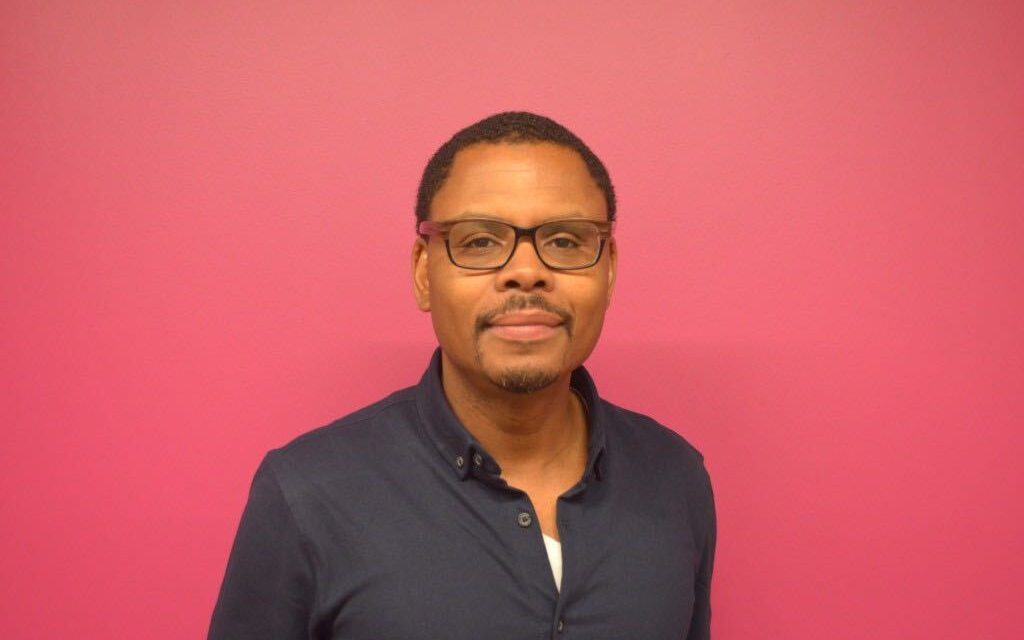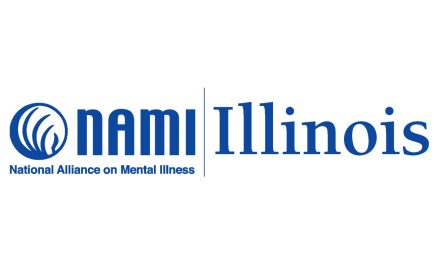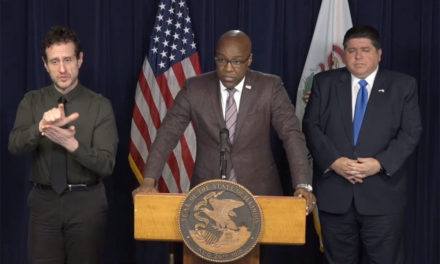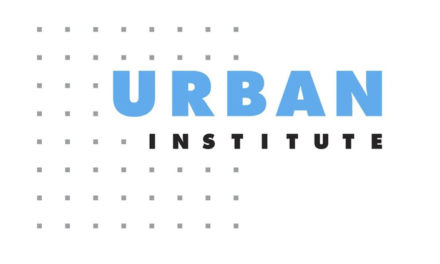
SEIU Healthcare Illinois seeks to improve mental health for its members

With workers still recovering from the strain of the COVID-19 pandemic and other challenges in the healthcare sector, SEIU Healthcare Illinois officials are looking to further expand its mental health offerings for members.
This summer saw the union host a four-week pilot program that SEIU Healthcare Illinois Mental Health Coordinator Amalia Salmeron said they strived to provide “knowledge, resources and language to… connect their experiences to these broader mental health structures.”
The webinars reached over 1,300 registered participants for the entirety of the program, Salmeron said, and feedback has shown a continued need to help members better understand mental health and what services are available to them.
Along with more support circles, she said they will continue to build up infrastructure so that members can access clinical services and information on other resources.
“That is definitely in our next steps, to start networking and be in communication with grassroots and local nonprofit organizations that do some more of this direct service work,” Salmeron said.
SEIU Healthcare President Greg Kelley also spoke with Health News Illinois this week to talk more about why the union decided to move forward with the initiative and the early feedback from its members.
Edited excerpts below:
HNI: How did this initiative come to be?
GK: Coming through COVID, just in interacting with our members and understanding some of the struggles that they were facing at work — and even beyond work — it became pretty clear to us that there’s a need for mental health support services. We are a union of healthcare workers and we know that mental health is an important part of the healthcare spectrum. Being in conversation with members made it clear to us that there was some interest and, in fact, a need to offer this to our members.
Cynthia (Turnquest, the union’s director of strategic initiatives) and others took the ball and started running with it. Obviously, not being experts in running these kinds of things, we weren’t really sure about how to do it, but we knew there was a need, so we started reaching out to people who are experts at these things. So we’ve started building from there.
HNI: What does this initiative look like in practice?
GK: We’ve done a lot of work to reach out to members to tell them about the program, for starters. Then we contracted with an expert who really gave us some good feedback about how we might approach this and what she could provide to us as a practitioner in the field. We also talked with folks that run our health and welfare fund. We just started bringing folks together to think about how we might create something like this. We’ve done a lot of education with our members after letting them know about the possibilities.
We piloted this effort with a handful of folks and what we found is that there was a lot of interest in this thing, and so we started ramping it up even more. I think our members were surprised to see that it was something that we were interested in helping them with, but (they) jumped in with both feet and said, ‘This is a great opportunity for us and that there’s a real need for it.’
HNI: How are your members doing now with all the challenges that come with exiting the pandemic and other issues facing the healthcare sector?
GK: It’s a mixed bag, I think it’s safe to say. When I reflect back on how things were in March, April and May of 2020 — the anger and the fear and the concern, all those emotions that people were feeling back in March 2020 — they are still there.
As folks have moved a little further from the actual crisis of that moment, that anger isn’t as palpable, but people are still struggling with how to deal with their own mental health. COVID is still with us, and it’s coming back. So the fear isn’t as great, but people really are struggling to figure out how to make sense of this moment.
Having the ability to take advantage of some of this program has really been important for a lot of folks. There’s lots of testimony about how, even beyond COVID-related things, people are really wanting to engage and better their own mental health, so lots of interest in it, and it’s still growing. But we’re excited about where we’re headed. We’re really just trying to wrap our arms around our members and say that these things are available and to feel free to take advantage of them.
HNI: What are the remaining challenges to making sure workers access these services? Is there still a stigma among members around mental health?
GK: I would say absolutely, there’s a lot of hesitation around mental health services. And not even just access, but there are (questions) about whether or not that’s something (they) personally or as an individual worker or a member can benefit from. There’s still some stigma around it, and so we’re spending a lot of time educating people about it. There’s this sense that people know something’s wrong, they just don’t quite know how to address it or how to fix it.
So giving people that space to engage in this work, it’s been interesting. It’s really been off-the-charts, a really, really good thing. But certainly, there’s a lot of hesitation within certain parts of our membership, and not even recognizing that there’s a need for help. It’s still something that we’re facing.
HNI: There’s been plenty of discussion about the healthcare workforce challenges, which include burnout and retaining those already working in the industry. How might this help with that issue?
GK: It’s a complicated issue. I think our members are definitely still experiencing burnout. A lot of healthcare facilities and employers aren’t fully staffed. And then you’ve got the challenge of whether or not employers are paying people decent wages to do such important work. There are a lot of challenges in the healthcare field. So for us as a union of healthcare workers, just identifying the problem, I think has been helpful for folks. Pay and staffing, they remain challenges. But I think as individual people, we’re finding out that people are seeing some real benefit to this program. Unfortunately, it doesn’t fully address the broader questions in the healthcare delivery system around staffing. And so for us, it’s like one piece of the puzzle, but certainly, it is a puzzle.
HNI: What are the next steps for the program?
GK: One other piece I would add is that we’re also trying to be intentional about building community relationships and partnerships. Again, this is a way in which our members can benefit, but there are people in our communities who are doing this work every day. And are there ways that we can create some synergies that benefit our members and their communities? Our members live in communities very often that are underserved in terms of access to healthcare: mental and other types of healthcare. And so how are we working with folks who are really trying to move the needle on this stuff, it’s a big part of our thinking going forward.









